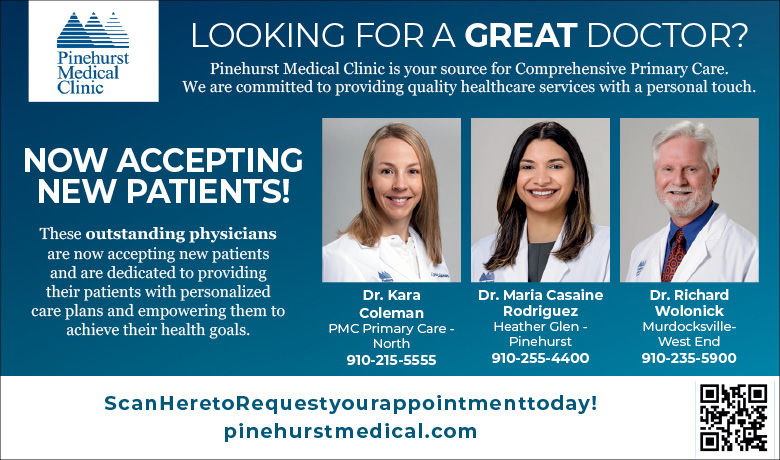PINEHURST, N.C. – Antibiotics save lives, but their overuse and misuse can put patients at unnecessary risk for preventable side effects and drug-resistant infections.
FirstHealth of the Carolinas will join other health care networks and the U.S. Centers for Disease Control and Prevention (CDC) Nov. 18-24 to take part in Antibiotic Awareness Week. The annual observance puts a special focus on appropriate antibiotic use to combat the threat of antibiotic resistance.
FirstHealth takes a patient-focused approach to ensure safe antibiotic use across its hospitals and clinics. During Antibiotics Awareness Week, staff are especially focusing on improving assessment and documentation of medication allergies to promote safe antibiotic use for patients.
Overuse and misuse can occur when antibiotics are used to treat viral illnesses and when a broad-spectrum antibiotic is used to treat an infection that could be treated with a narrower one. Detailed medication allergy documentation is helpful in prescribing the right antibiotic.
Heather Gibson, PharmD, the Antimicrobial Stewardship Pharmacist at Moore Regional Hospital says allergy profiles are often left incomplete, with drug names listed but no reaction type.
“We are hoping to take all opportunities to get these allergies updated and completed because when we don’t know what the reaction to the antibiotic was, doctors sometimes have to select a much broader antibiotic than necessary to treat the patient,” she says. “Selecting this broad-spectrum antibiotic can lead to increased risk of Clostridioides difficile (C. diff), potentially needing to use IV antibiotics rather than oral and increased risk of drug resistance.”
Antibiotic resistance is one of the most urgent threats to public health. When resistance happens in patients, antibiotics may not be able to fight bacteria. Antibiotic-resistant infections can be difficult, and sometimes impossible, to treat. According to the CDC, more than 2.8 million antibiotic-resistant infections occur in the United States each year, and more than 35,000 people die as a result.
Jolena Allred, DNP, FNP-BC with FirstHealth Family Medicine, Seven Lakes says documenting detailed information is imperative to avoid antibiotic overuse in both the outpatient and inpatient environments.
“Medication allergies need to be identified and documented,” she says. “Sometimes what is listed as an allergy is actually a side effect. For instance, about 10 percent of all U.S. patients report having an allergic reaction to a penicillin but fewer than 1 percent of the population have a true IgE-mediated penicillin allergy.”
Allred has created an education initiative for outpatient providers during Antibiotic Awareness Week. Named “Picking the KNOWS”, the campaign focuses include:
- Know the right medication
- Know the reaction
- Know the severity level of the reaction
- Know how to document in EPIC
Gibson spearheaded the “Tell Me More” campaign for inpatient staff, which focuses on asking patients about drug allergies and providing detailed documentation. The goal of both initiatives is to help providers choose the most efficacious and safe antibiotic for patients.
During U.S. Antibiotic Awareness Week and throughout the year, CDC works to educate the public about when antibiotics are needed, when they are not, how to take antibiotics appropriately and potential side effects of antibiotics.
CDC informs patients that:
- Antibiotics do not treat viruses, like those that cause colds, flu or COVID-19
- Antibiotics are only needed for treating certain infections caused by bacteria, but even some bacterial infections get better without antibiotics. Antibiotics aren’t needed for many sinus infections and some ear infections.
- An antibiotic will not make you feel better if you have a virus. Respiratory viruses usually go away in a week or two without treatment.
- If you need antibiotics, take them exactly as prescribed. Talk with your health care professional if you have any questions about your antibiotics.
- You should talk with your health care professional if you develop any side effects, especially severe diarrhea, since that could be a C. diff infection, which needs immediate treatment.









